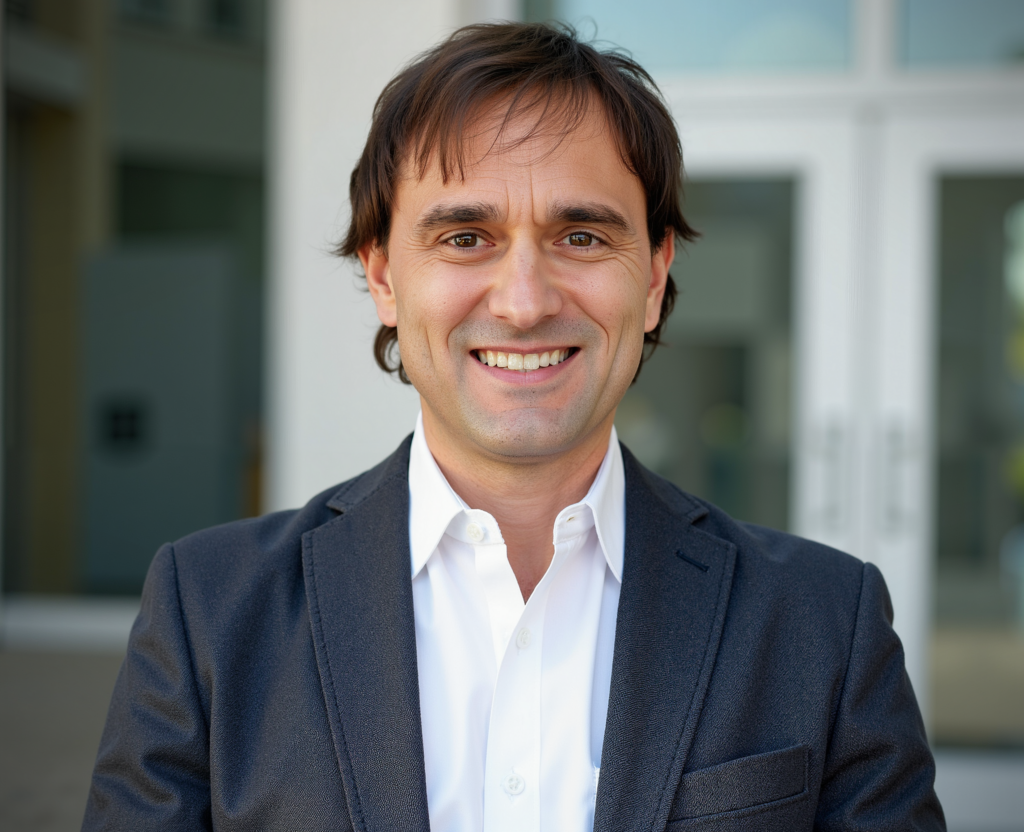UM-Flint professor explores e-bike infrastructure and safety as part of NSF-funded team

A University of Michigan-Flint professor is helping lead a new research initiative to make U.S. cities safer and more accessible for cyclists and the rapidly growing number of e-bike riders.

Greg Rybarczyk, associate professor of geography and a fellow at the Centre for Urban Design and Mental Health, is co-principal investigator on a $610,000 National Science Foundation grant. The project, "Bicycle infrastructure for all: Understanding users' comfort and safety perceptions to prepare for an e-bike future," is led by the University of Florida and spans multiple urban areas, including parts of that state and Washington, D.C.
The research team will investigate how existing bicycle infrastructure supports the needs of both traditional cyclists and users of electric bicycles, whose increased speed, size and weight raise new safety considerations.
"With e-bikes growing in popularity, we need to rethink how our cities are currently designed and how they'll be designed in the future," Rybarczyk said. "Most bike lanes were built with standard bicycles in mind. Our study will help communities better understand where current infrastructure succeeds and where it needs to evolve."
What sets this project apart from others is the use of artificial intelligence to analyze Google Street View imagery and create realistic cycling infrastructure design scenarios. By training algorithms to assess the safety features of urban cycling environments, researchers hope to create a faster, scalable method for evaluating streets without collecting footage on the ground. The team will also employ advanced causal modeling techniques to identify how specific design elements influence perceptions of comfort and safety.
"In the past, we would've had to ride through every corridor with a GoPro camera to gather this kind of data," Rybarczyk said. "Now, we can use freely available imagery and AI to identify key design elements like lane separation, lighting, signage and traffic volume. That saves time and opens up a much larger dataset."
The team is developing a survey instrument to collect baseline data on cyclist comfort and perception. Inspired by a Detroit-focused study Rybarczyk led last year, the new survey instrument will be deployed in several cities, including Washington, D.C. and Orlando.
Bikeshare data from companies such as Lime and Lyft will provide route and trajectory insights, helping researchers understand how cyclists make travel decisions and interact with infrastructure in real-world settings.
Beyond practical improvements to urban infrastructure, Rybarczyk views this project as a means of pushing the boundaries of interdisciplinary research.
"We're working towards developing a novel socioecological theory of planned behavior model," he said. "By integrating well-established social and behavioral theories with engineering models, we feel we can strengthen the convergence between social science and engineering disciplines."
The result will provide city planners, transportation agencies and cycling advocates with evidence-based tools to invest in safer, more inclusive bike networks. Rybarczyk hopes his work will positively impact senior-aged cyclists, who may benefit most from e-bike adoption.
"This is about building infrastructure that reflects how and why people ride," he said. "I want people of all ages to benefit, but if we can support older cyclists' independence and sense of belonging, those are big success metrics for me. Combining user perceptions, trip data and AI-driven analysis, we can support equitable, data-informed transportation decisions like these."
The project runs through March 2026. For more information, please visit the NSF's website.
Jeffrey Jones
Jeff Jones is the communications & marketing manager for the College of Innovation & Technology.

